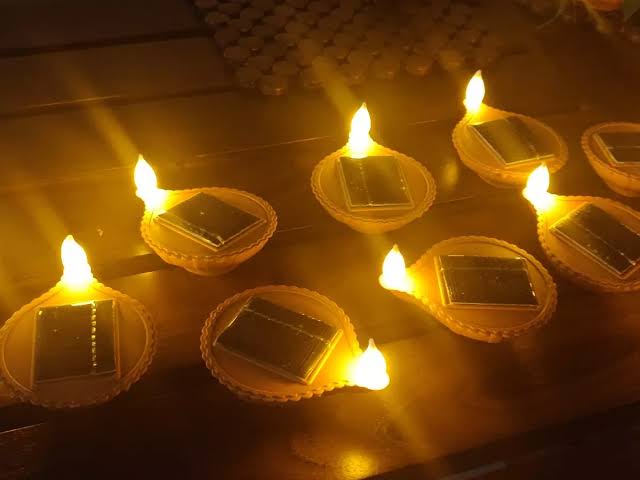Mumbai’s Rohit Jadhav went viral for creating solar-powered Diwali lights from e-waste. His DIY innovation promotes sustainability, reduces grid dependency, and inspires eco-friendly celebrations. With millions of views and growing interest, his initiative reflects a shift toward green festive practices and grassroots recycling awareness.
In a remarkable blend of sustainability and creativity, a Mumbai-based engineer has captured national attention by crafting solar-powered Diwali lights entirely from discarded electronic waste. His eco-conscious innovation, shared through DIY reels on Instagram, has sparked a wave of interest in green festive practices across urban India.
Key Highlights From The Viral Innovation
• Rohit Jadhav, an electronics engineer from Andheri, repurposed old circuit boards, mobile batteries, and LED fragments to build solar-powered string lights for Diwali 2025
• His Instagram reels demonstrating the assembly process and nighttime illumination have garnered over 2.5 million views and 200,000 likes within a week
• The lights operate entirely on solar charge, offering zero grid dependency and a sustainable alternative to conventional festive lighting
• Jadhav’s initiative aligns with India’s growing e-waste challenge, which crossed 1.6 million tonnes in 2024, prompting calls for grassroots recycling
• He has launched free workshops across Mumbai’s colleges and housing societies to teach others how to build similar solar kits from household scrap
• Environmental groups and influencers have amplified his work under hashtags like #GreenDiwali, #TrashToTwinkle, and #SolarCelebrations
Cultural And Strategic Relevance
Diwali, the festival of lights, often sees a surge in electricity consumption and plastic waste. Jadhav’s innovation offers a meaningful alternative that preserves the spirit of celebration while minimizing environmental impact. His work resonates with younger audiences seeking purpose-driven, sustainable lifestyles.
Industry Context
India’s solar lighting market is expanding rapidly, with demand for off-grid solutions rising in both urban and rural areas. DIY solar kits made from e-waste could emerge as a niche segment, especially among eco-conscious millennials and Gen Z consumers.
Market Outlook
With growing interest in sustainable living, Jadhav’s model may inspire startups and NGOs to scale similar initiatives. Future collaborations could include smart solar décor, community recycling drives, and digital tutorials for green festive innovations.
Sources: Hindustan Times, India Today, Instagram/@rohitjadhav.in

